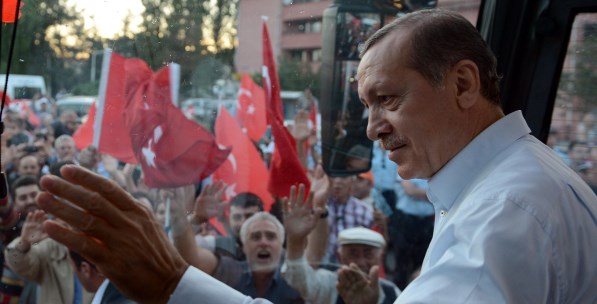In the discussions about the “defective understanding of democracy of the Justice and Development Party (AK Party) government and the Prime Minister” that kicked off with the Gezi Parkı protests and were kept alive with the July 3 military coup d’état in Egypt, the opposition groups invited the government to adopt “pluralist democracy” without ever questioning it. Nevertheless, those who advise the government to be “pluralist” suddenly become monotheistic, when it comes to the possibility of non-Western civilizations and modernities. In the meantime, such concepts as “participatory democracy” and “deliberative democracy,” which need to be seriously discussed in terms of their substance, consistency and implications, were exploited to tell the government that the sphere within which the incumbent government can engage in politics will be determined not by the majority who voted for it, but by the minority who did not vote for it. Thus, the serenade the opposition performed for lofty ideals such as compromise, dialogue, pluralism and multiple voices both in Turkey and Egypt became indexes of intolerance towards conservative/ religious parties in power (Yalçın Akdoğan, Star, July 6). Ultimately, the fact that “democracy depends, in no small measure, on people waiting to defeat the incumbent government at the ballot box rather than in the streets” (1) is ignored.
THE DEMOCRACY PROBLEMATIQUE
Turkey’s Liberal-leftists, who supported the Gezi Park protests for fear of a new Turkey based on conservative values, complained to both domestic and foreign media about how limited Prime Minister Recep Tayyip Erdoğan’s understanding of democracy is. Numerous elites, academics and columnists argued that Turkey’s government embraced a “majoritarian democracy” and ballotocracy. On the basis of the new alcohol regulations the AK Party government passed they argued that the Prime Minister tries to impose a particular lifestyle on dissenting groups because his understanding of democracy is insufficient. Given the Prime Minister’s emphasis on elections and legitimate authority conferred by elections, they claim that what the government understands from democracy is not democracy but ‘electrocracy’. To put it differently, they argue that the government mistakenly believes that the democracy is all about elections held in every four years. So, here comes that anti-democratic perspective that leaves those, who are not liberal or social democrats, only two choices: either become autocrats or electrocrats.
These criticisms against the government and the Prime Minister attempt to trivialize the key role of the ballot box in democracies. In our region, the new method to struggle against the unwanted (centre-right) party in power is to neutralize the legitimacy guaranteed to it by the free and fair elections, the pillar of any democratic regime. In the name of more advanced democracy, these aforementioned groups try to undermine the fundamental rule that the democracy is the “peaceful transfer of power from one party to another in free, fair and regular elections.” They, instead, try to instill the anti-political and wrongheaded idea that the aim of holding democratic elections is to elect a political party that will literally represent each and every opinion in a country. They try to show some problems, inherent to the democracy regime itself, will somehow disappear and everybody in the country will be fully represented if another political party comes to power. Creating a cause and effect relationship between these “problems” and the AK Party’s identity and the Prime Minister’s character is the last and admittedly the most “intellectual” manifestation of intolerance towards the majority, the conservative/religious groups in the country.
INTRODUCTION TO DEMOCRACY
Contrary to what many would like us to believe, election







